
12 Rules for Life
An Antidote to Chaos
What is 12 Rules for Life about?
12 Rules for Life by Jordan B. Peterson is a thought-provoking self-help book that offers practical advice for living a meaningful and fulfilling life. Peterson draws on psychology, philosophy, and his own experiences to provide 12 essential rules for personal development. From standing up straight to telling the truth, this book offers insightful guidance on how to navigate life's challenges and strive for personal growth.
About the Author
Jordan B. Peterson is a Canadian clinical psychologist, cultural critic, and professor of psychology known for his book "12 Rules for Life: An Antidote to Chaos." His work combines psychology with mythology, religion, and personal development, often exploring themes of order, chaos, and the meaning of life.
12 Key Ideas of 12 Rules for Life
- Stand Up Straight With Your Shoulders Back
- Treat Yourself Like Someone You Are Responsible for Helping
- Make Friends with People Who Want the Best for You
- Compare Yourself to Who You Were Yesterday, Not to Who Someone Else Is Today
- Do Not Let Your Children Do Anything That Makes You Dislike Them
- Set Your House in Perfect Order Before You Criticize the World
- Pursue What Is Meaningful (Not What Is Expedient)
- Tell the Truth—Or, At Least, Don’t Lie
- Assume That the Person You Are Listening To Might Know Something You Don’t
- Be Precise in Your Speech
- Do Not Bother Children When They Are Skateboarding
- Pet a Cat When You Encounter One on the Street
The connection between human social structures and the animal kingdom, especially lobsters, provides deep insights into our existence. Comparing us to lobsters highlights how deeply rooted dominance hierarchies are in our biology. Like lobsters, humans also navigate complex social environments where posture and confidence are crucial.
Lobster behavior, studied extensively due to their simple nervous systems, reveals much about the neurochemical processes that govern feelings of superiority or inferiority. These creatures engage in battles for territory which mirror human conflicts over resources and status. When a lobster wins, its brain chemistry changes; it grows more confident and stands taller—quite literally embodying victory.
Humans share this biological heritage; our neurochemistry, including serotonin levels, fluctuates based on perceived social standing. This can lead to either a virtuous cycle of confidence or a vicious cycle of defeatism depending on one's position within society's pecking order.
Remember, your posture not only reflects but also influences your mental state. Standing tall, with shoulders back, is more than just a physical stance—it's a powerful statement of self-assurance and a step towards mastering the intricate social hierarchies of our world, just as the victorious lobster rules its territory.
Unpacking Social Dynamics
Recognizing that we're part of an age-old hierarchy system can illuminate the roots of complex emotions like anxiety or assertiveness, offering us clearer paths to self-understanding and emotional balance.
- Universal Territorial Instincts: From songbirds zealously guarding their nests to humans protectively overseeing their homes, territorial behavior is a universal phenomenon. This instinct, deeply embedded in our psyche, influences much of our interpersonal dynamics, shaping how we interact with others and defend what we value.
- Hierarchy's Impact on Wellness: In nature and society alike, the effects of hierarchical positions are profound. Just as lower-ranking chickens in a flock experience more stress, humans in subordinate positions, whether in a corporate setting or social groups, often face similar challenges. Understanding this correlation can be a catalyst for addressing workplace stress and fostering a more supportive environment.
- Learning Conflict Resolution from Nature: Animals, often resolving disputes without lethal force, offer valuable lessons in conflict management. This approach, focusing on non-violent resolutions, can be a guiding principle for humans in mitigating conflicts, whether personal or professional.
- Neurochemistry and Social Status: Serotonin's role in mood regulation cannot be overstated. By understanding how our status within social hierarchies influences our serotonin levels, we can better address our emotional health. This knowledge empowers us to seek ways to improve our standing, not just socially, but also internally, in our mental and emotional landscapes.
Tactics
- Improve Posture: Adopting the physical stance of winners—standing tall with shoulders back—can chemically alter your brain towards positivity.
- Understand Social Hierarchies: Acknowledge that hierarchies influence every aspect of life from workplace dynamics to personal relationships.
- Manage Neurochemical Responses: If you're struggling emotionally due perhaps to low serotonin levels indicative of low hierarchical status seek help; balance is crucial for mental health.
- Assertiveness Training: Cultivating assertiveness may elevate your rank within social hierarchies leading to better outcomes both personally and professionally.
- Body Language Awareness: Be mindful that non-verbal communication speaks volumes about where you stand (literally) in the eyes of others influencing interactions significantly.
Key Examples/Data
- Lobsters and Territory: Lobsters live on the ocean floor and need a secure territory for hunting and shelter. They engage in territorial disputes, similar to other creatures like songbirds, to establish dominance and attract high-quality mates. This territorial behavior is a matter of life and death, impacting survival and reproduction.
- Wren's Nesting Territory: Wrens, a small songbird, fiercely defend their nesting territory. They engage in territorial disputes and use their songs to establish dominance and attract mates. The example of a wren aggressively claiming a nesting space demonstrates the importance of territory in the animal kingdom.
- Conflict Resolution in Lobsters: Lobsters engage in complex dispute resolution, starting with defensive and aggressive behaviors, and escalating to combat if necessary. The outcome of these disputes significantly impacts their social status and survival, reflecting the importance of dominance hierarchy and territory.
- Neurochemistry of Defeat and Victory: The neurochemistry of lobsters reflects the impact of defeat and victory on their behavior and posture. The levels of serotonin and octopamine influence their confidence, posture, and response to stress, demonstrating the link between neurochemistry, dominance, and behavior.
- Unequal Distribution and Dominance Hierarchy: The principle of unequal distribution, known as Price's law, applies to dominance hierarchies in animals and human societies. It highlights the concentration of resources, success, and influence among a small fraction of individuals, shaping social status and competition for resources.
Quotes
- "The determination of Who’s Who in the chicken world has important implications for each individual bird’s survival, particularly in times of scarcity."
- "Because territory matters, and because the best locales are always in short supply, territory-seeking among animals produces conflict."
- "The loser is unlikely to survive, particularly if he or she remains in the territory occupied by the winner, now a mortal enemy."
- "The animals advance on each other, with increasing speed. Their claws are open, so they can grab a leg, or antenna, or an eye-stalk, or anything else exposed and vulnerable."
- "The majority of scientific papers are published by a very small group of scientists. A tiny proportion of musicians produces almost all the recorded commercial music."
- "The dominance hierarchy is not capitalism. It’s not communism, either, for that matter. It’s not the military-industrial complex. It’s not the patriarchy—that disposable, malleable, arbitrary cultural artefact."
12 Rules for Life Summary: Common Questions
Experience Personalized Book Summaries, Today!
Discover a new way to gain knowledge, and save time.
Sign up for our 7-day trial now.
No Credit Card Needed

Similar Books
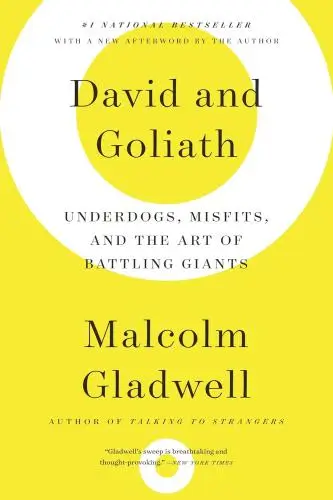
David and Goliath
Malcolm Gladwell
The 48 Laws of Power
Robert Greene
Switch
Chip Heath
Do What You Are
Paul D. Tieger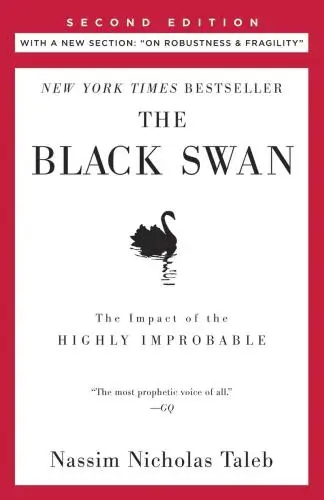
The Black Swan
Nassim Nicholas Taleb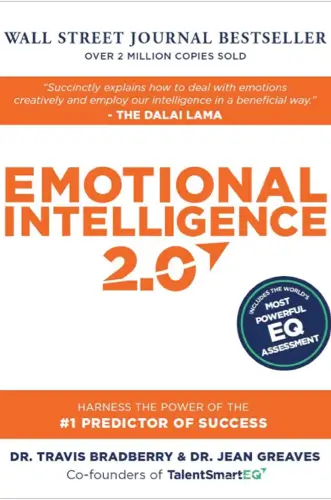
Emotional Intelligence 2.0
Travis Bradberry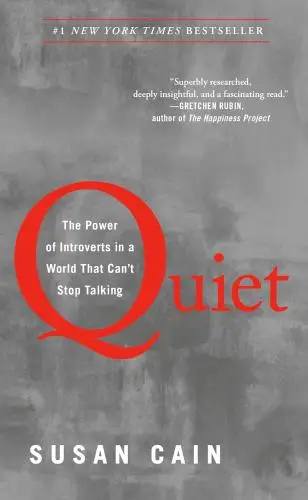
Quiet
Susan Cain
What to Say When You Talk to Yourself
Shad Helmstetter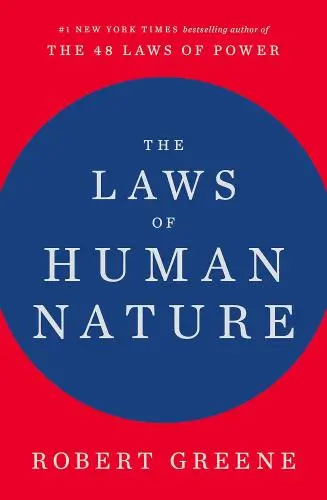
The Laws of Human Nature
Robert Greene
Feeling Good
David D. Burns
Who Moved My Cheese?
Spencer Johnson
Emotional Intelligence
Daniel GolemanTrending Summaries

Peak
Anders Ericsson
Never Split the Difference
Chris Voss
Smart Brevity
Jim VandeHei
The Psychology of Money
Morgan Housel
The First 90 Days
Michael D. Watkins
Atomic Habits
James Clear
Thinking, Fast and Slow
Daniel Kahneman
The Body Keeps the Score
Bessel van der Kolk M.D.
The Power of Regret
Daniel H. Pink
The Compound Effect
Darren Hardy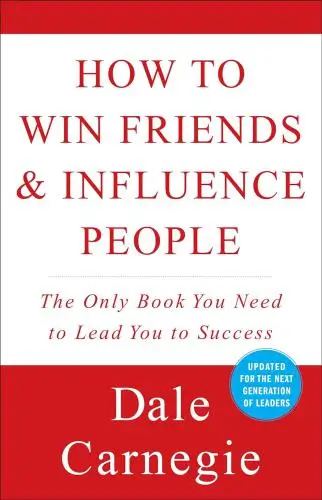
How to Win Friends & Influence People
Dale Carnegie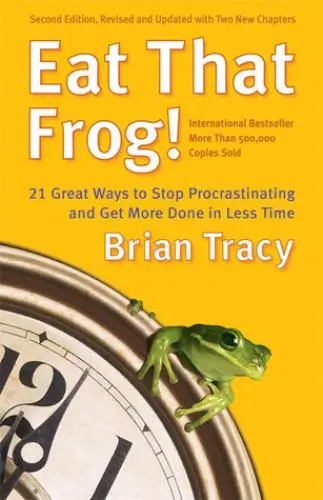
Eat That Frog!
Brian Tracy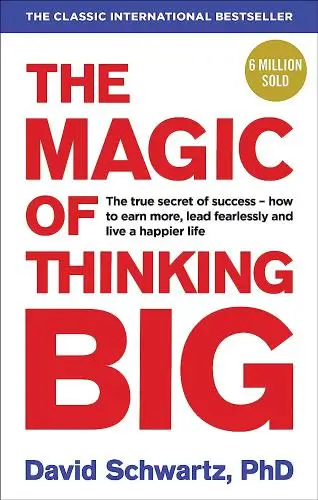
The Magic of Thinking Big
David J. Schwartz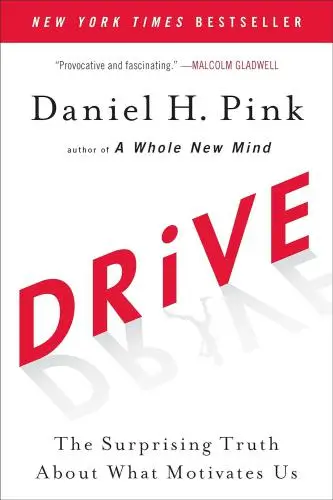
Drive
Daniel H. Pink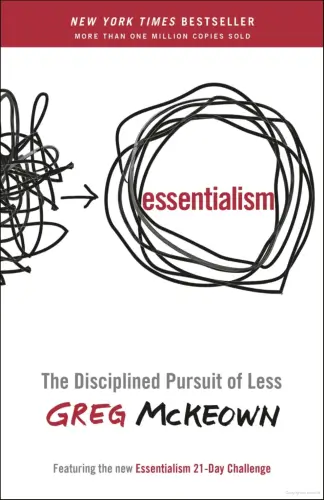
Essentialism
Greg McKeownNew Books

The Millionaire Fastlane
MJ DeMarco
Losing My Virginity
Richard Branson
Venture Deals
Brad Feld
48 Days to the Work You Love
Dan Miller
Anything You Want
Derek Sivers
Running Lean
Ash Maurya
Blitzscaling
Reid Hoffman
The Founder's Dilemmas
Noam Wasserman
Founders at Work
Jessica Livingston
The Startup Owner's Manual
Steve Blank
The Art of the Start 2.0
Guy Kawasaki
The Four Steps to the Epiphany
Steve Blank
Flash Boys
Michael Lewis
Crush It!
Gary Vaynerchuk
